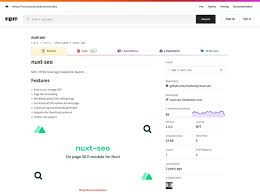Real Estate SEO: Enhancing Online Visibility for Property Professionals
In today’s digital age, having a strong online presence is crucial for businesses across all industries, including the real estate sector. With more and more potential buyers and sellers turning to the internet to search for properties, it has become essential for real estate professionals to optimize their websites and content to improve visibility in search engine results. This practice is known as Real Estate SEO (Search Engine Optimization).
Real Estate SEO involves implementing strategies and techniques that help websites rank higher in search engine results pages (SERPs) when users search for relevant keywords or phrases related to real estate. By improving their online visibility, real estate professionals can attract more qualified leads, increase website traffic, and ultimately drive more conversions.
So, how can real estate professionals leverage SEO to enhance their online presence? Let’s explore some key strategies:
- Keyword Research: Conducting thorough keyword research is the foundation of any successful SEO campaign. Identify the keywords and phrases potential clients are using when searching for properties in your target market. Focus on long-tail keywords that are specific to your niche or location.
- Optimized Website Structure: Ensure that your website is user-friendly and easy to navigate. Organize your content logically into categories such as property types, locations, or services offered. Optimize each page with relevant meta tags, headers, and descriptive URLs.
- High-Quality Content: Content is king in the world of SEO. Create informative and engaging content that caters to the needs of your target audience. Incorporate relevant keywords naturally throughout your website copy, blog posts, property descriptions, and landing pages.
- Local SEO: Real estate is a location-based industry, so optimizing for local searches is crucial. Include location-specific keywords in your content and meta tags. Claim your business on Google My Business and other local directories to ensure accurate contact information appears in local search results.
- Mobile Optimization: With the increasing use of smartphones, it’s essential to have a mobile-friendly website. Optimize your website for mobile devices to provide a seamless experience for users on-the-go.
- Backlink Building: Building high-quality backlinks from reputable websites can significantly boost your SEO efforts. Reach out to industry influencers, local businesses, and relevant publications to secure backlinks to your website.
- Social Media Integration: Leverage social media platforms to expand your online reach and engage with potential clients. Share valuable content, promote property listings, and encourage user-generated content through social media campaigns.
- Monitor Analytics: Regularly monitor your website’s performance using tools like Google Analytics. Analyze key metrics such as organic traffic, bounce rates, and conversion rates to identify areas for improvement and adjust your SEO strategy accordingly.
By implementing these strategies consistently and staying up-to-date with the latest SEO trends, real estate professionals can gain a competitive edge in the digital landscape. Remember that SEO is an ongoing process that requires continuous effort and adaptation as search engine algorithms evolve.
In conclusion, Real Estate SEO is an essential tool for real estate professionals looking to enhance their online visibility and attract more qualified leads. By investing time and resources into optimizing their websites and content, real estate professionals can establish themselves as trusted authorities in their niche and drive business growth in the digital realm.
Frequently Asked Questions about Real Estate SEO: A Comprehensive Guide
- What is Real Estate SEO?
- Why is Real Estate SEO important?
- How does Real Estate SEO work?
- What are some key strategies for effective Real Estate SEO?
- How long does it take for Real Estate SEO efforts to show results?
- Should I hire a professional agency or do Real Estate SEO myself?
What is Real Estate SEO?
Real Estate SEO, also known as Real Estate Search Engine Optimization, refers to the practice of optimizing a real estate website and its content to improve its visibility in search engine results pages (SERPs). It involves implementing strategies and techniques that aim to increase organic (non-paid) traffic from search engines like Google, Bing, and Yahoo.
The goal of Real Estate SEO is to rank higher in search engine results for relevant keywords and phrases that potential buyers or sellers use when searching for properties or real estate-related information. By appearing on the first page of search results, real estate professionals can attract more qualified leads, increase website traffic, and ultimately drive more conversions.
Real Estate SEO involves various elements and tactics, including:
- Keyword Research: Identifying the keywords and phrases that potential clients are using when searching for properties in a specific location or niche. This helps optimize website content around those keywords to improve visibility.
- On-Page Optimization: Optimizing individual web pages by incorporating relevant keywords into meta tags (title tags, meta descriptions), headers (H1, H2), URLs, and content. This helps search engines understand the relevance of the page to specific queries.
- Content Creation: Creating high-quality, informative, and engaging content that caters to the needs of the target audience. This includes blog posts, property descriptions, guides, market reports, and other valuable resources.
- Local SEO: Optimizing for local searches by including location-specific keywords in content and meta tags. Claiming your business on Google My Business and other local directories helps ensure accurate contact information appears in local search results.
- Link Building: Building high-quality backlinks from reputable websites in the real estate industry or related niches. These backlinks signal authority to search engines and can boost organic rankings.
- Mobile Optimization: Ensuring that a real estate website is mobile-friendly so that it provides a seamless user experience on smartphones and tablets.
- Social Media Integration: Leveraging social media platforms to expand online reach, engage with potential clients, and share valuable content or property listings.
Real Estate SEO is an ongoing process that requires continuous monitoring, analysis, and adaptation as search engine algorithms evolve. By implementing effective SEO strategies, real estate professionals can enhance their online presence, attract more targeted traffic, and establish themselves as trusted authorities in the industry.
Why is Real Estate SEO important?
Real Estate SEO is important for several reasons:
- Increased Online Visibility: With the majority of homebuyers and sellers starting their real estate journey online, it is crucial for real estate professionals to have a strong online presence. By implementing SEO strategies, such as optimizing their websites and content, they can improve their visibility in search engine results pages (SERPs). This increased visibility allows them to reach a wider audience and attract more potential clients.
- Targeted Traffic: Real Estate SEO helps drive targeted traffic to a real estate professional’s website. By optimizing their content with relevant keywords and phrases, they can attract users who are actively searching for properties or real estate services in their target market. This means that the traffic they receive is more likely to be qualified leads who are interested in what they have to offer.
- Competitive Advantage: The real estate industry is highly competitive, with numerous professionals vying for the attention of potential clients. By investing in SEO, real estate professionals can gain a competitive edge by ranking higher than their competitors in search engine results. This increased visibility can lead to more inquiries, property showings, and ultimately, more closed deals.
- Brand Building: Implementing effective Real Estate SEO strategies helps build brand awareness and credibility. When a real estate professional consistently appears at the top of search results, it instills trust in potential clients and positions them as experts in their field. This can lead to increased brand recognition and a positive reputation within the industry.
- Cost-Effective Marketing: Compared to traditional advertising methods like print media or billboards, Real Estate SEO offers a cost-effective marketing solution. While there may be upfront costs associated with optimizing a website or hiring SEO professionals, the long-term benefits far outweigh the initial investment. Once a website ranks well organically in search engines, it continues to attract traffic without ongoing advertising expenses.
- Long-Term Results: Unlike paid advertising campaigns that stop generating traffic once the budget is exhausted, Real Estate SEO can provide long-term results. By consistently implementing SEO strategies and staying up-to-date with industry changes, real estate professionals can maintain and improve their search engine rankings over time.
In conclusion, Real Estate SEO is important because it helps real estate professionals increase their online visibility, attract targeted traffic, gain a competitive advantage, build their brand, and achieve long-term marketing success. By investing in SEO strategies, real estate professionals can position themselves for growth and success in today’s digital landscape.
How does Real Estate SEO work?
Real Estate SEO works by optimizing a real estate website and its content to improve its visibility in search engine results pages (SERPs) when users search for relevant keywords or phrases related to real estate. Here’s a breakdown of how it works:
- Keyword Research: The first step is to conduct thorough keyword research to identify the specific keywords and phrases potential clients are using when searching for properties in your target market. This research helps you understand what terms are most relevant and valuable for your SEO efforts.
- On-Page Optimization: Once you have identified the target keywords, you need to optimize your website’s on-page elements. This includes incorporating the keywords naturally into your website copy, meta tags, headers, URLs, and image alt tags. On-page optimization ensures that search engines can understand the relevance of your content to specific search queries.
- High-Quality Content Creation: Creating high-quality and informative content is crucial for Real Estate SEO. Develop blog posts, articles, property descriptions, and landing pages that provide value to your target audience. Incorporate relevant keywords naturally throughout the content while ensuring it remains useful and engaging.
- Local SEO: Real estate is a location-based industry, so optimizing for local searches is essential. Include location-specific keywords in your content and meta tags to attract users searching for properties in specific areas. Claiming your business on Google My Business and other local directories also helps improve local visibility.
- Mobile Optimization: With the increasing use of smartphones, having a mobile-friendly website is vital for Real Estate SEO success. Optimize your website’s design and functionality to ensure it provides a seamless experience for users on mobile devices.
- Backlink Building: Building high-quality backlinks from reputable websites is an important aspect of Real Estate SEO. Seek opportunities to collaborate with industry influencers, local businesses, or relevant publications that can link back to your website. These backlinks signal authority and credibility to search engines, boosting your website’s ranking.
- Social Media Integration: Integrating social media into your SEO strategy can expand your online reach and engagement. Share valuable content, promote property listings, and encourage user-generated content through social media campaigns. This can drive more traffic to your website and improve its visibility in search results.
- Monitoring and Analysis: Regularly monitor your website’s performance using tools like Google Analytics. Analyze key metrics such as organic traffic, bounce rates, and conversion rates to evaluate the effectiveness of your SEO efforts. Adjust your strategy based on the insights gained from these analytics.
Real Estate SEO is an ongoing process that requires continuous effort and adaptation as search engine algorithms evolve. By implementing these strategies consistently and staying up-to-date with the latest SEO trends, real estate professionals can improve their online visibility, attract more qualified leads, and drive business growth in the digital realm.
What are some key strategies for effective Real Estate SEO?
When it comes to effective Real Estate SEO (Search Engine Optimization), there are several key strategies that can help real estate professionals improve their online visibility and attract qualified leads. Here are some essential strategies to consider:
- Keyword Research: Conduct thorough keyword research to identify the search terms potential clients use when looking for properties in your target market. Focus on long-tail keywords that are specific to your niche or location.
- Optimized Website Structure: Ensure your website is user-friendly and easy to navigate. Organize your content logically into categories such as property types, locations, or services offered. Optimize each page with relevant meta tags, headers, and descriptive URLs.
- High-Quality Content: Create informative and engaging content that caters to the needs of your target audience. Incorporate relevant keywords naturally throughout your website copy, blog posts, property descriptions, and landing pages.
- Local SEO: Real estate is a location-based industry, so optimizing for local searches is crucial. Include location-specific keywords in your content and meta tags. Claim your business on Google My Business and other local directories to ensure accurate contact information appears in local search results.
- Mobile Optimization: With the increasing use of smartphones, having a mobile-friendly website is essential. Optimize your website for mobile devices to provide a seamless experience for users on-the-go.
- Backlink Building: Building high-quality backlinks from reputable websites can significantly boost your SEO efforts. Reach out to industry influencers, local businesses, and relevant publications to secure backlinks to your website.
- Social Media Integration: Leverage social media platforms to expand your online reach and engage with potential clients. Share valuable content, promote property listings, and encourage user-generated content through social media campaigns.
- Monitor Analytics: Regularly monitor your website’s performance using tools like Google Analytics. Analyze key metrics such as organic traffic, bounce rates, and conversion rates to identify areas for improvement and adjust your SEO strategy accordingly.
Remember that effective Real Estate SEO requires continuous effort and adaptation as search engine algorithms evolve. By implementing these strategies consistently, real estate professionals can establish themselves as trusted authorities in their niche and drive business growth in the digital realm.
How long does it take for Real Estate SEO efforts to show results?
The timeline for seeing results from Real Estate SEO efforts can vary depending on several factors, including the competitiveness of the market, the current state of your website’s SEO, and the specific strategies implemented. It’s important to understand that SEO is a long-term investment and not an overnight solution.
Typically, it can take several weeks or even months to start seeing noticeable improvements in search engine rankings and organic traffic. Search engines need time to crawl and index your website, evaluate its relevance and authority, and adjust their algorithms accordingly.
In the initial stages of your SEO campaign, you may focus on optimizing your website’s structure, conducting keyword research, creating high-quality content, and building a strong foundation for future growth. These efforts lay the groundwork for long-term success but may not yield immediate results.
As your website gains more visibility in search results and establishes authority through backlinks and user engagement, you can expect to see gradual improvements in rankings and organic traffic. However, it’s important to note that SEO is an ongoing process that requires consistent effort. Regular monitoring of analytics data will help you assess the effectiveness of your strategies and make necessary adjustments.
It’s also worth mentioning that real estate is a highly competitive industry in terms of online visibility. Depending on your target market and competition level, it may take longer to achieve significant results. Patience and persistence are key when it comes to Real Estate SEO.
Overall, while there isn’t a specific timeframe for seeing results from Real Estate SEO efforts, consistent implementation of best practices over time can lead to improved rankings, increased organic traffic, and ultimately more qualified leads for your real estate business.
Should I hire a professional agency or do Real Estate SEO myself?
Deciding whether to hire a professional agency or handle Real Estate SEO yourself depends on several factors, including your budget, time availability, expertise, and the complexity of your SEO needs. Here are some considerations to help you make an informed decision:
- Expertise: SEO requires a deep understanding of search engine algorithms, keyword research, on-page optimization, link building, and content strategy. If you have the knowledge and experience in these areas, you may feel confident in managing Real Estate SEO yourself. However, if you lack expertise or have limited knowledge of SEO best practices, hiring a professional agency can ensure that your SEO efforts are executed effectively.
- Time Commitment: Implementing a successful SEO strategy requires consistent effort and ongoing monitoring. Ask yourself if you have the time and resources to dedicate to learning and implementing SEO techniques while also managing other aspects of your real estate business. If time is limited or if you prefer to focus on core business activities, outsourcing your SEO to a professional agency can save you valuable time.
- Complexity: Consider the complexity of your website and online presence. If you have a simple website with basic optimization needs, handling Real Estate SEO yourself may be feasible. However, if you have a large website with multiple pages and complex technical requirements, it may be more efficient to hire professionals who specialize in managing complex SEO projects.
- Budget: Hiring an agency typically involves costs associated with their services. Consider whether allocating budget for professional assistance aligns with your financial resources and goals. Keep in mind that investing in expert guidance can yield long-term benefits by improving your online visibility and generating qualified leads.
- Updates and Maintenance: Search engine algorithms evolve regularly, requiring continuous updates to maintain optimal performance. Staying up-to-date with industry changes can be challenging if you’re managing everything independently. Professional agencies stay abreast of these updates and can adapt your strategy accordingly.
Ultimately, both options have their pros and cons. It’s essential to evaluate your specific circumstances, goals, and available resources. If you decide to hire a professional agency, ensure that you research and select a reputable firm with experience in Real Estate SEO. If you choose to handle it yourself, invest time in learning best practices, following industry blogs and forums, and staying informed about the latest SEO trends.




